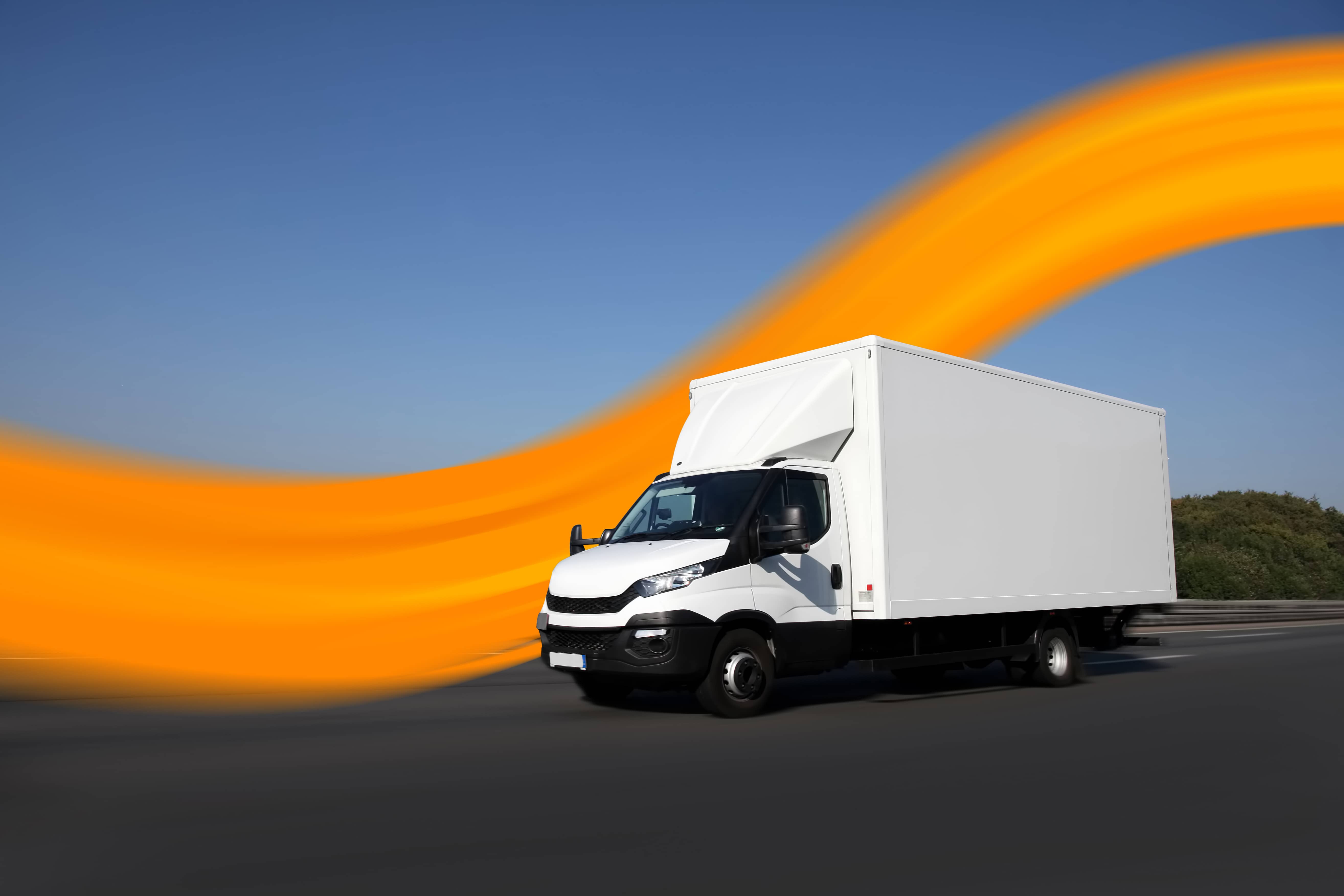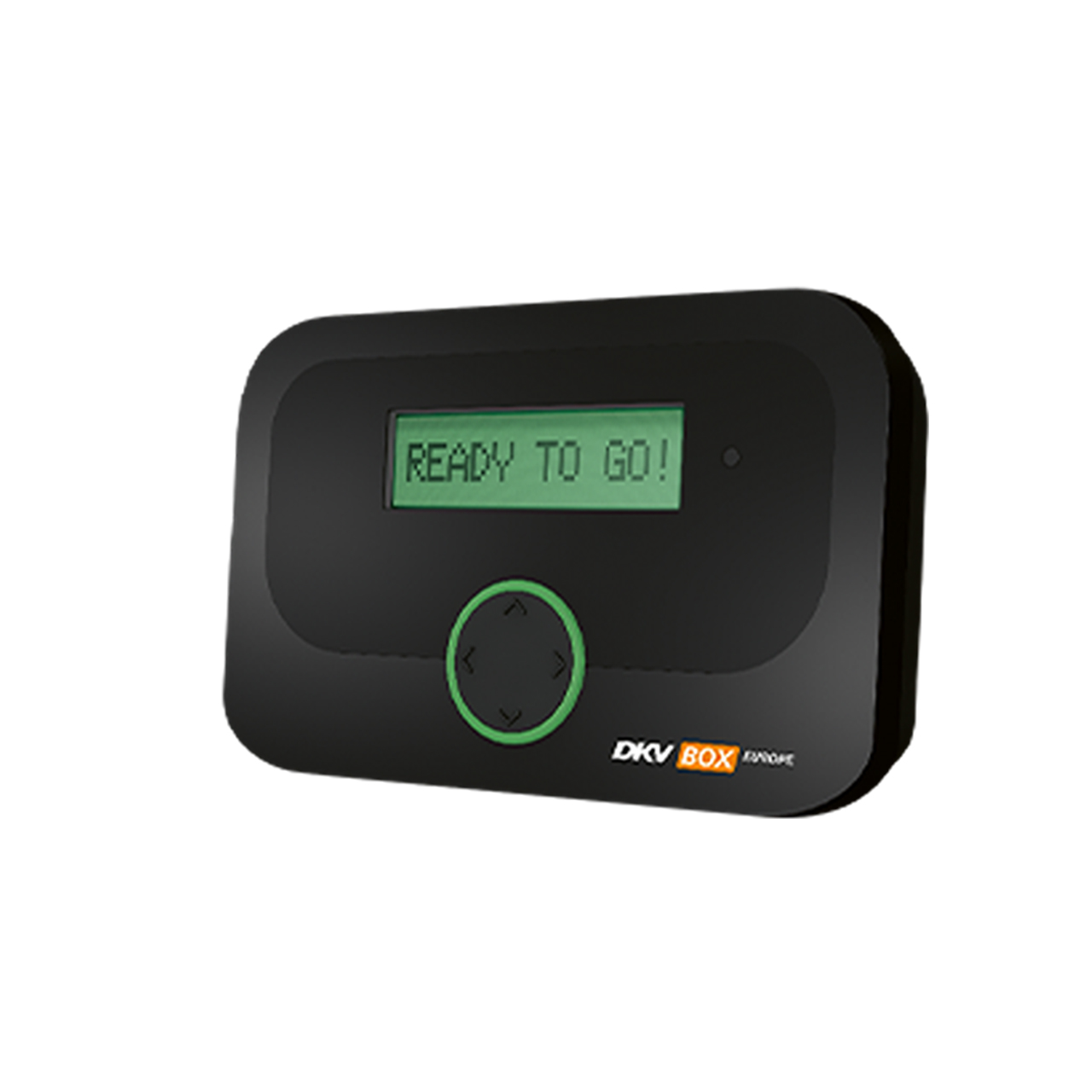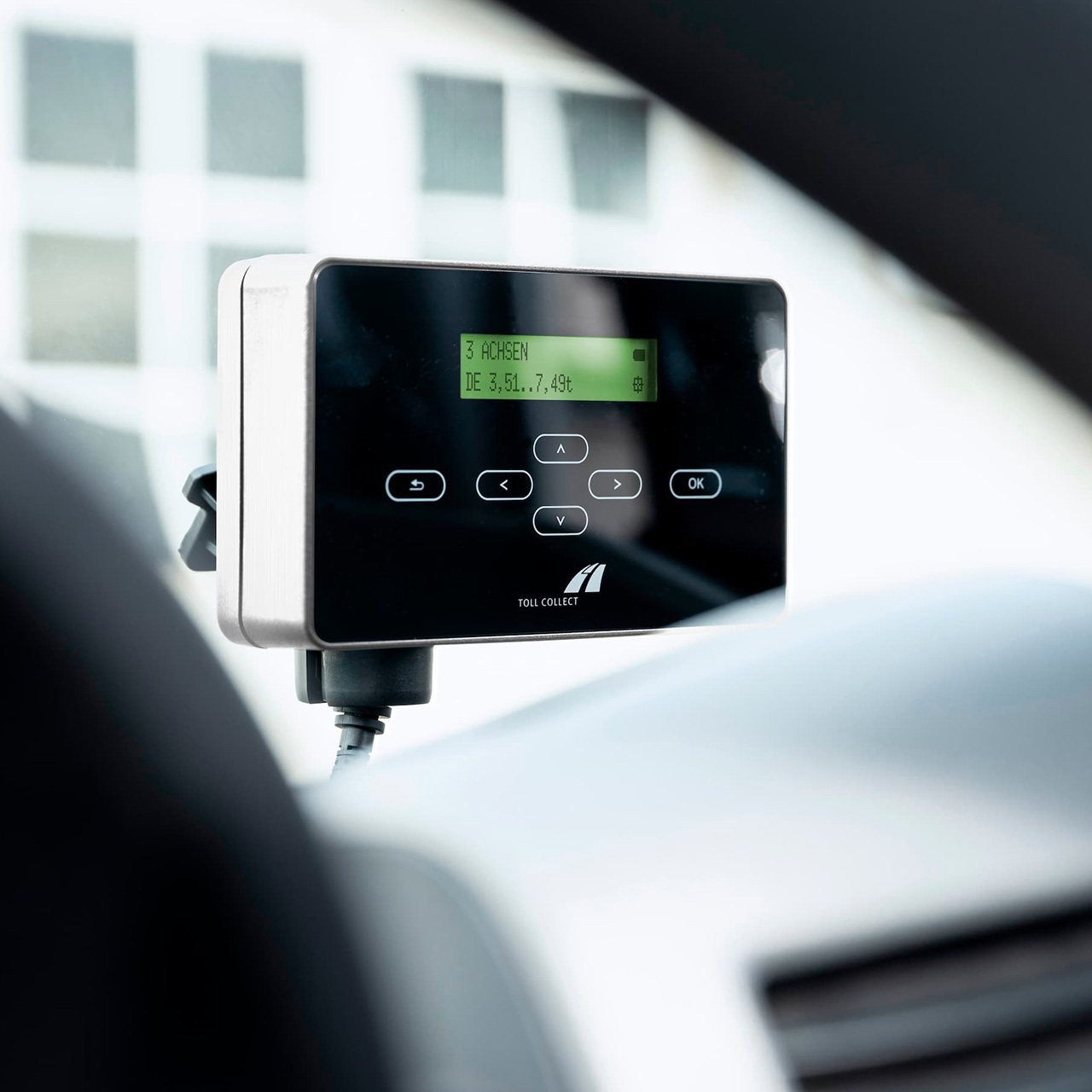The toll from 3.5 tons
From July 1, 2024, the new toll for vehicles weighing 3.5 tons or more will apply in Germany - what you need to know now

What you can expect on this page:
-
1. REGISTER FOR 3.5 TONS OF TOLL SOLUTIONS
Register now for the simple electronic toll solution -
2. FAQ ABOUT THE GERMAN 3.5 TOLL
Answers to the most important questions about the 3.5-ton toll -
3. TOLL OBLIGATION CHECK
Check whether your vehicles are affected by the toll from 3.5 tons upwards -
4. EXCEPTIONS
Important exceptions to the 3.5 tonne toll - including artisan vehicles -
5. NEW TOLL TARIFFS
Current tariffs for vehicles weighing 3.5 tons or more -
6. TOLL CHARGES CALCULATOR
Calculate charges for your vehicles -
7. REGISTER AND PAY TOLLS IN GERMANY
Discover DKV Mobility solutions for toll collection
The most important questions and answers about the toll from 3.5 tons in Germany
In addition to the current toll regulations in Germany(7.5t truck toll; CO2 toll), there is also a toll for vehicles with a technically permissible total mass (tzGm) of more than 3.5 tons and up to 7.5 tons.
The toll applies to commercial vehicles over 3.5 tons and up to 7.5 tons that are used or intended for freight transport.
Vehicle combinations are subject to tolls if the towing vehicle has a technically permissible total mass (tzGm) of more than 3.5 tons.
Both domestic and foreign vehicles are affected.
The toll applies to all journeys on federal highways and freeways. The toll is payable as soon as you enter such a road, as well as at the associated service stations.
However, there are exceptions, for example for tradespeople and zero-emission vehicles. You can find out more in the section "Exceptions to the 3.5-tonne toll" .
The toll over 3.5 tons will come into force in Germany from 1 July 2024
Tolls are collected electronically, so the installation of a toll box - also known as an OBU (on-board unit) - is recommended.
The OBU sends the toll data to the central toll collection point, which calculates the amount and prepares the invoice. You can find more information below in the section "How does payment of the new tolls in Germany work? ".
The new regulation of toll charges serves to finance the transport infrastructure. The background to the new adjustment to the calculation of toll rates are both EU requirements and the so-called infrastructure cost report of the Federal Ministry for Digital and Transport Affairs.
According to the so-called Eurovignette Directive, the truck toll must be based on the costs for the construction, operation, maintenance and expansion of traffic routes.
Exemption from the toll obligation: exemptions and regulations
Find out more about exceptions and exemptions from the new 3.5-ton toll in Germany. An overview of vehicles that are exempt from the toll and the corresponding conditions and regulations:
Emission-free vehicles such as electric vehicles and hydrogen-powered vehicles as well as vehicles with a hydrogen fuel cell will remain exempt from tolls until December 31, 2025.
From January 1, 2026, 25 percent of the partial toll rate for infrastructure costs plus the partial toll rates for noise and air pollution will be payable for zero-emission vehicles.
Emission-free vehicles up to 4.25 tons tzGm (technically permissible total mass) are permanently exempt from the toll.
Electrically powered vehicles are exempt from the toll until the end of 2025 and will then pay 25 percent of the toll rate for infrastructure plus the toll rates for noise and air pollution.
The current toll law stipulates that zero-emission vehicles are exempt from paying tolls until December 31, 2025. After that, only a 75 percent reduced toll rate for infrastructure costs and partial rates for air and noise pollution are to be paid.
- Buses, as well as vehicles of the armed forces, police, civil defense and disaster control, fire department and other emergency services and the federal government are exempt from the toll.
- Caravans and motorhomes are also not subject to tolls as long as they are not used for the commercial transportation of goods
- Vehicles used exclusively for road maintenance and operation services (including road cleaning and winter road maintenance) do not have to pay tolls.
- Vehicles used by showmen and circuses are not subject to tolls
- Vehicles used by non-profit or charitable organizations for the transport of humanitarian aid (to alleviate an emergency) are exempt from the toll.
- Agricultural and forestry vehicles pursuant to Section 2 (1) No. 7 of the Road Haulage Act and the associated empty runs are exempt from tolls.
Companies and owners of vehicles not subject to tolls can voluntarily have them entered in a Toll Collect list. Registration prevents unnecessary checks and saves time and effort.
Registration is valid for a maximum of two years and cannot be extended.
The craftsmen's exemption from the 3.5-ton toll
For tolls of 3.5 tons or more in Germany, tradespeople are exempt from tolls in certain cases - An overview
The craftsmen's exemption is a driving-relatedtoll exemption from the German 3.5 tonne toll.
This means that journeys made by craftsmen's vehicles can be exempted from the toll obligation under certain conditions.
The exemption applies to vehicles with a technically permissible maximum mass of more than 3.5 and less than 7.5 tons that are used by craft businesses.
- Transportation of materials, equipment or machines that are necessary for the services and work of the craft business (including tools, work equipment, spare parts, building materials, cables, devices or accessories)
- Transportation of handcrafted goods that are manufactured, processed or repaired in your own craft business
- Return journeys and empty journeys are also exempt from tolls if they are directly related to craft activities or the delivery of goods produced by craftsmen
- Deliveries of industrially manufactured goods
- Commercial transportation for third parties
- Auxiliary activities within the scope of the company's overall activities
- Workshop, transfer or private journeys with trade vehicles are also still subject to tolls
- For mixed trips, the focus of the trip applies (the manual part must predominate)
You can find out whether they fall under the craftsmen's exemption and further information on the Toll Collect FAQ page .
In addition, the Federal Office of Logistics and Mobility has published a list of occupations that meet the requirements for the craftsman's exemption. List of craft activities
Suitable for the craftsman exception are, for example:
- Craft/trade card
- Business registration (copy)
- Delivery bills
- Customer orders

1. DKV BOX EUROPE
The DKV BOX EUROPE is our reliable solution that you can install in your vehicles yourself and use immediately thanks to "plug and play". This means no costs and downtime for installation and removal.
You also benefit from clear controlling of your entire fleet via the customer portal, our 24-hour expert support and many other advantages.

2. Toll collect toll box
The Toll Collect toll box is installed and removed by a certified partner workshop. All you have to do is make an appointment and make your vehicle available for the duration of the installation. As soon as the box is installed in the vehicle, the driver no longer has to log in manually.
You can use the DKV Card as a means of payment for billing.